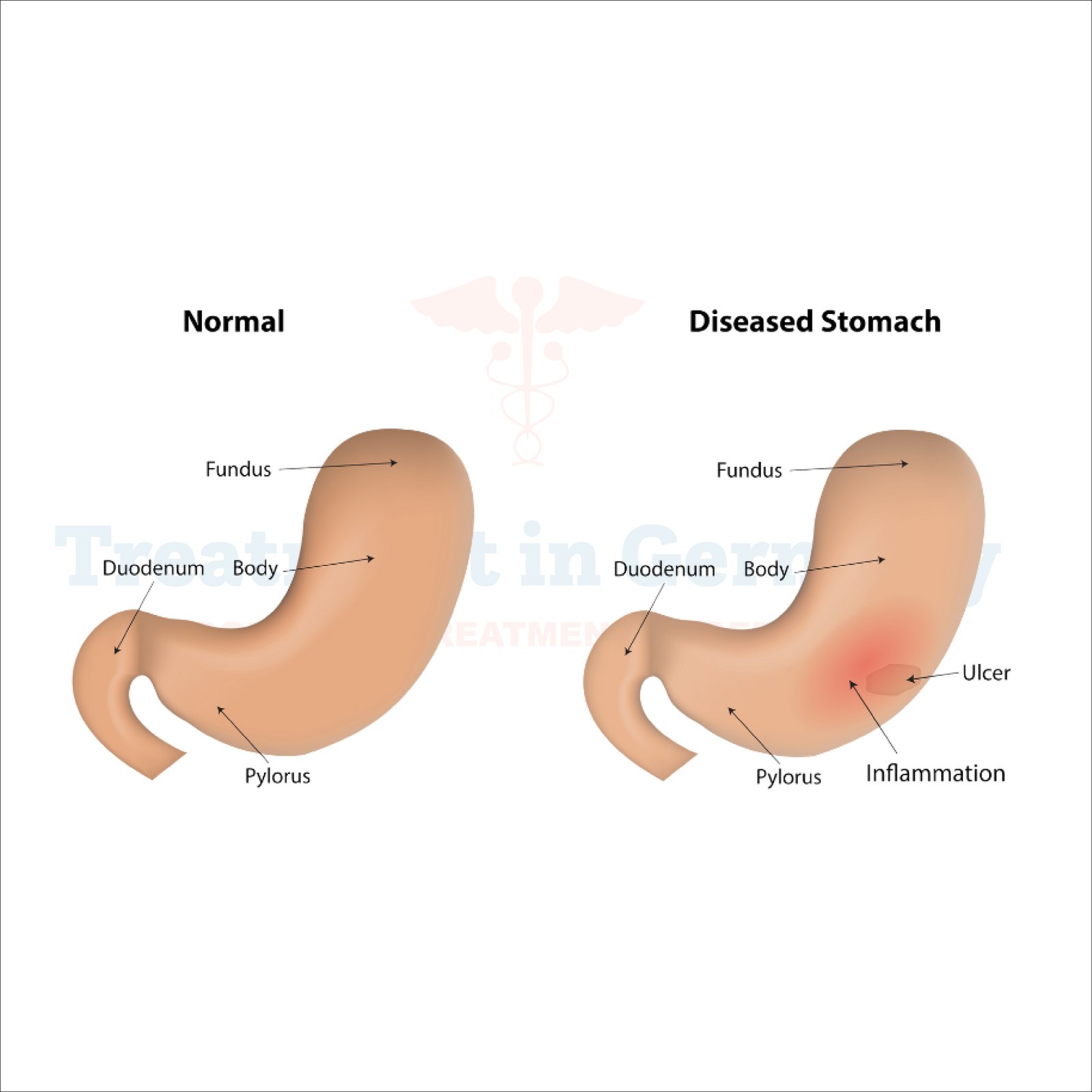What is Gastritis?
Gastritis is a medical condition characterized by inflammation or irritation of the lining of the stomach. It can occur suddenly (acute gastritis) or develop gradually over time (chronic gastritis). This inflammation can be triggered by various factors, including bacterial infections, excessive alcohol consumption, long-term use of nonsteroidal anti-inflammatory drugs (NSAIDs), stress, and autoimmune diseases.
Side Effects of Gastritis:
The symptoms of gastritis can vary depending on the severity and underlying cause but may include:
- Abdominal pain or discomfort
- Nausea and vomiting
- Indigestion
- Loss of appetite
- Bloating
- Belching
- Blood in vomit or stools (in severe cases)
These symptoms can significantly impact daily life and may worsen if left untreated, potentially leading to complications such as stomach ulcers or bleeding.
How is Gastritis Diagnosed?
If you suspect you have Gastritis, it's essential to seek medical evaluation. Your doctor in Germany may conduct several tests to diagnose gastritis, including:
- Endoscopy: A procedure in which a thin, flexible tube with a camera is inserted into the stomach to visually inspect the lining and collect tissue samples for biopsy.
- Blood tests: to check for signs of infection or anemia.
- Stool tests: to detect the presence of blood or bacteria.
- Imaging tests: such as X-rays or CT scans, to evaluate the stomach and surrounding organs.
These diagnostic tests help your healthcare provider determine the underlying cause of your symptoms and tailor a treatment plan accordingly.
Potential Treatments of Gastritis:
Treatment for gastritis in Germany depends on the underlying cause and severity of symptoms. Common treatment approaches may include:
- Medications: Your doctor may prescribe medications to reduce stomach acid production, relieve pain, and treat underlying infections. These may include proton pump inhibitors (PPIs), H2 blockers, antacids, antibiotics (if Helicobacter pylori infection is present), and medications to protect the stomach lining.
- Dietary Changes: Adopting a gastritis-friendly diet can help alleviate symptoms and promote healing. This may involve avoiding spicy, acidic, or fatty foods, limiting alcohol and caffeine consumption, and eating smaller, more frequent meals.
- Lifestyle Modifications: Making lifestyle changes such as reducing stress, quitting smoking, and managing underlying conditions like obesity can also support gastritis treatment and prevention of recurrence.
- Alternative Therapies: Some patients find relief from gastritis symptoms through complementary and alternative therapies such as acupuncture, herbal supplements, and probiotics. However, it's essential to consult with your healthcare provider before trying these approaches.
- Follow-Up Care: Regular follow-up appointments with your doctor are crucial to monitor your progress, adjust treatment as needed, and prevent complications.
👉 Contact us for further information and receive a
complimentary consultation.


.webp)
 (1).webp)

.webp)
 (1).webp)


.webp)
 (1).webp)

.webp)
 (1).webp)
